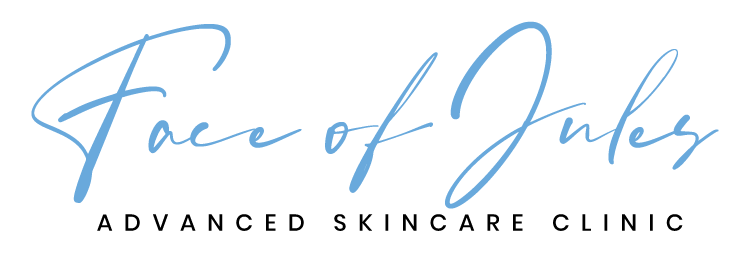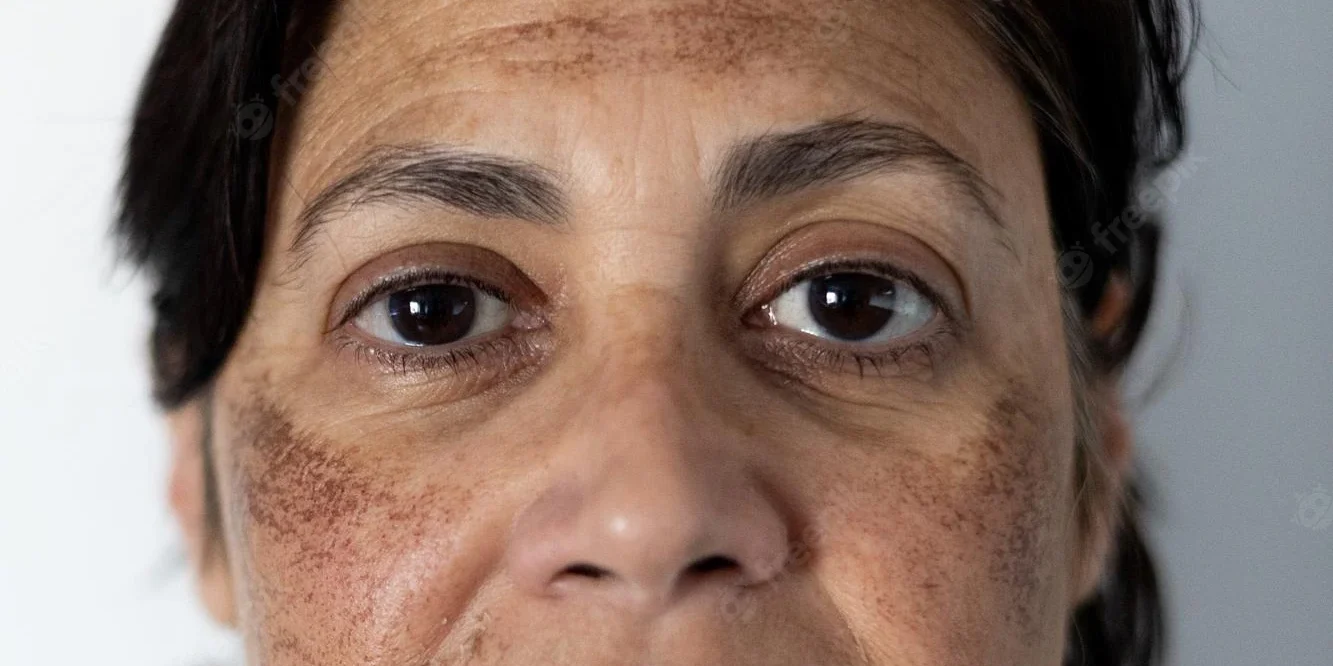When it comes to getting rid of dark spots and discoloration, a chemical peel is one of the best methods out there. A chemical peel is essentially a process that exfoliates the skin at a much deeper level than most other skincare products. By using a chemical solution, you’re able to reveal fresh new skin beneath the old layer of skin cells that may have gotten damaged or sunburnt. Reducing the appearance of dark spots from acne can be challenging for anyone who has struggled with breakouts in the past, but luckily there are several different types of chemical peels designed to target specific problem areas on your face. Using a chemical peel is also one of the gentlest ways to exfoliate your skin while simultaneously revealing fresh new skin beneath. Here’s everything you need to know about how to get rid of dark spots with chemical peels:
How Does a Chemical Peel Work?
A chemical peel works by using a chemical solution that’s applied to the surface layer of your skin, allowing it to penetrate deep down where it can break up and remove the old and damaged surface layer of skin cells. The process itself is actually an exfoliation process that removes the top layer of skin cells and uncovers fresh new skin below. A chemical peel is not too dissimilar to dermabrasion, in that both processes are designed to create a more even skin tone by removing the damaged outer layer of skin. However, chemical peels are much gentler on the surface of the skin and will generally have less risk of scarring or damaging your skin as a whole.
Types of Chemical Peels
There are a few different types of chemical peels that you can try out to help reduce the appearance of dark spots and discoloration on your skin. Here are a few of the most common chemical peels that are often used to target dark spots: – Glycolic Acid Peel: Probably one of the most common types of chemical peels, glycolic acid peels are usually recommended for frequent usage on all skin types. Glycolic acid peels help to exfoliate the skin and stimulate collagen production for brighter and more even-toned skin. Glycolic acid peels are often used for targeting fine lines and wrinkles, but also work well for treating acne marks left behind by breakouts. – Salicylic Acid Peel: Salicylic acid is a common acne-fighting ingredient and can be found in many skincare products and acne treatments. Salicylic acid peels are often recommended for individuals who are looking to reduce the appearance of stubborn acne marks and discoloration on their skin. Salicylic acid peels are particularly helpful for acne-prone skin types, and can help clear up acne breakouts while also keeping your skin balanced and hydrated. – Retinol Peel: Retinol is a type of skincare ingredient that is often used to treat acne, as well as a variety of other skincare concerns. Retinol peels are a great option for individuals who are struggling with acne, as they can help clear up breakouts while also reducing the appearance of dark spots and discoloration on the skin. Retinol peels are usually best for individuals with normal to oily skin types, and may cause irritation if used on dry or sensitive skin types.
Which Chemicals Are Best For Dark Spot Reduction?
Depending on the type of chemical peel that you select, there may be certain chemicals that are more effective than others for targeting dark spots and acne marks on your skin. Certain chemicals, such as glycolic acid, are often recommended for treating acne and helping to clear up breakouts. While other chemicals have a more targeted approach and may be better for reducing the appearance of dark spots. For example, retinol is often recommended for targeting fine lines and wrinkles, while salicylic acid is often recommended for acne treatment. So, in short, most chemical peels are effective for treating a variety of skincare concerns, but some are better for targeting dark spots and acne marks than others. Still, there is no one best chemical peel for all skin types, and you may want to try out a few different peels to see which one works best for your skin.
Which Skin Types Are Best for Chemical Peels?
While chemical peels are generally safe to use on most skin types, it’s important to remember that everyone’s skin is different and that there may be certain skin types that are better suited to a chemical peel than others. It’s also important to note that different chemical peels target different skin concerns, meaning that while you can use multiple peels on different skin types, they may be more effective on certain skin types than others. While the specific skin types that are best for each individual peel will vary, here is a general overview of which skin types may be best for each type of peel: – Glycolic Acid Peel: Glycolic acid peels are one of the gentlest chemical peels on the market, making them ideal for treating acne on all skin types. Glycolic acid peels also help to reduce the appearance of fine lines and wrinkles, making them a great choice for all skin types. – Salicylic Acid Peel: Salicylic acid is often recommended for acne-prone skin types, but can also be used to treat dark spots and discoloration on all skin types. Salicylic acid peels can often be stronger than glycolic acid peels and may cause some irritation on dry and sensitive skin types. – Retinol Peel: Retinol peels are best for normal to oily skin types and can be used to treat acne and reduce the appearance of fine lines and wrinkles. Retinol peels can be used on all skin types, but may be more effective on oily skin types.
Which Parts of the Body Can Benefit From a Chemical Peel?
While chemical peels are mainly used on the face, they can also be used on a variety of other parts of the body, such as the chest, back, and legs. Chemical peels are commonly used by dermatologists to treat uneven skin on the back, chest, and legs, as well as other areas of the body with dark spots and hyperpigmentation. For example, back peels are often used to treat hyperpigmentation caused by sun damage or acne breakouts on the back and chest, while leg peels are often used to treat acne marks and dark spots on the legs. Generally, chemical peels are most effective when used on the face, but they can also be used on other parts of the body to treat a variety of skin concerns.
Which Is the Best Chemical Peel for Dark Spots?
While all types of chemical peels may be effective for treating dark spots and acne marks on your skin, there is no one best chemical peel that is best for every single skin type. It’s important to remember that everyone’s skin is different, and there is no “perfect” recipe for skincare that works for everyone. That said, it may be helpful to keep the following in mind when trying to find the best chemical peel for your skin: – Glycolic Acid Peel: Glycolic acid peels are one of the gentlest chemical peels on the market and are often recommended for acne-prone skin types. While glycolic acid peels do not target dark spots specifically, they can be helpful for reducing the appearance of fine lines and wrinkles, as well as acne marks. – Salicylic Acid Peel: Salicylic acid is often recommended for acne-prone skin types, but can also be helpful for targeting the appearance of dark spots on all skin types. Salicylic acid is especially helpful for individuals who are struggling with stubborn acne marks that just won’t seem to go away. – Retinol Peel: Retinol peels are best for normal to oily skin types, as they are often stronger than glycolic and salicylic acid peels and may cause irritation if used on dry skin types. Retinol peels are often helpful for treating acne and reducing the appearance of dark spots on all skin types.
Conclusion
While there are many different ways to get rid of dark spots, chemical peels are one of the gentlest and most effective methods out there. Chemical peels work by using a chemical solution that penetrates the skin and exfoliates the surface layer, revealing fresh new skin beneath. Check out our Pigmentation Skincare Treatments. Book online or give us a call to schedule.

